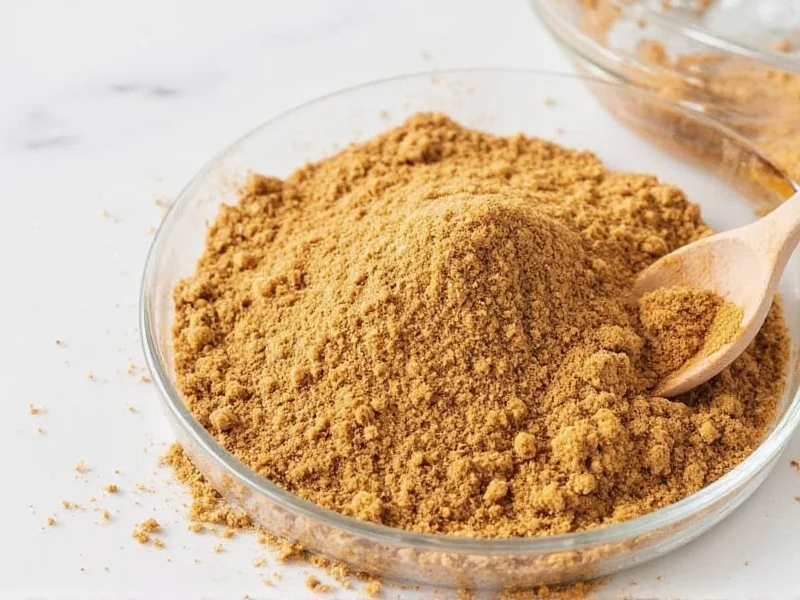Running out of onion powder mid-recipe doesn't have to ruin your cooking plans. Whether you're making chili, marinades, or spice blends, understanding proper onion powder alternatives ensures your dishes maintain their intended flavor profile. This comprehensive guide details effective substitutes with precise measurements, helping you adapt recipes confidently when onion powder isn't available.
Why You Might Need an Onion Powder Substitute
Home cooks frequently search for onion powder alternatives for several practical reasons. You might have simply run out of this pantry staple, need to accommodate dietary restrictions like FODMAP sensitivity, or desire a fresher flavor profile in your cooking. Understanding proper substitution ratios prevents recipe failures and maintains the savory umami notes that onion powder typically provides in dry spice blends and rubs.
Top Onion Powder Substitutes with Measurements
Choosing the right substitute depends on your recipe type and desired flavor intensity. Here are the most effective alternatives with precise conversion ratios:
Fresh Onions
Fresh onions provide the most authentic flavor but introduce moisture that affects recipe chemistry. For every 1 tablespoon of onion powder required:
- Yellow onions: Use 1/4 cup finely minced (about 1 small onion)
- White onions: Use 3 tablespoons minced for sharper flavor
- Red onions: Use 3 tablespoons minced for salads and raw applications
For best results, sauté fresh onions until translucent before adding to dry spice mixtures. This "onion powder replacement with fresh onions" technique works particularly well in soups, stews, and meatloaf.
Onion Salt
Onion salt serves as a convenient 1:1 flavor substitute but requires sodium adjustments. For every 1 tablespoon of onion powder:
- Use 3/4 teaspoon onion salt
- Reduce additional salt in recipe by 1/4 teaspoon
This "onion powder substitute without salt" approach maintains flavor while controlling sodium levels. Ideal for seasoning blends and dry rubs where moisture content matters.
Shallots
Shallots offer a more delicate, slightly sweet alternative perfect for refined dishes. For every 1 tablespoon of onion powder:
- Use 2-3 tablespoons finely minced shallots
- Sauté until golden for concentrated flavor
This "milder onion powder substitute" works exceptionally well in sauces, dressings, and French-inspired cuisine where subtle allium notes are preferred.
Leeks
Leeks provide a gentle onion flavor suitable for sensitive palates. For every 1 tablespoon of onion powder:
- Use 3 tablespoons white and light green leek parts, finely minced
- Sauté until soft before incorporating
This "gentle onion powder alternative" proves valuable for those with digestive sensitivities while maintaining savory depth in dishes.
| Substitute | Ratio (per 1 Tbsp powder) | Flavor Intensity | Moisture Content | Best Recipe Applications |
|---|---|---|---|---|
| Fresh Yellow Onion | 1/4 cup minced | ★★★☆☆ | High | Chili, stews, meatloaf |
| Onion Salt | 3/4 tsp | ★★★☆☆ | None | Dry rubs, seasoning blends |
| Shallots | 2-3 Tbsp minced | ★★☆☆☆ | Medium | Sauces, dressings, delicate dishes |
| Leeks | 3 Tbsp minced | ★☆☆☆☆ | Medium-High | Cream soups, mashed potatoes, sensitive diets |
| Garlic Powder | 1/2 Tbsp | ★★★★☆ | None | Meat dishes, tomato sauces (use sparingly) |
Specialized Substitution Techniques
Mastering "how to replace onion powder in specific recipes" requires understanding recipe chemistry. In dry spice blends, maintain dry ingredient ratios by using dehydrated alternatives. For wet applications like marinades, fresh alternatives work better. When substituting in baked goods, reduce liquid content by 1-2 teaspoons per 1/4 cup of fresh onion added.
For those following low-FODMAP diets, the "onion powder substitute for IBS" question has specific solutions. Use the green tops of scallions (2 tablespoons per tablespoon of powder) or asafoetida (1/8 teaspoon per tablespoon of powder) which provide similar savory notes without triggering digestive issues.
When Substitutions Won't Work
Some applications demand onion powder's specific properties. Avoid substitutions in:
- Dry spice rubs for meats (moisture from fresh alternatives prevents proper searing)
- Commercial seasoning blends (altered moisture affects shelf life)
- Certain baked goods where precise liquid ratios matter
In these cases, consider making your own onion powder by dehydrating minced onions at 140°F for 6-8 hours, then grinding to powder consistency.
Storage Tips for Substitutes
Understanding "how to store onion powder alternatives" preserves their effectiveness. Keep homemade onion powder in airtight containers away from light for up to 6 months. Fresh alternatives maintain best flavor when used within 24 hours of preparation. For long-term storage, freeze sautéed onions in ice cube trays with 1 tablespoon per cube for easy recipe integration later.
Frequently Asked Questions
Can I use garlic powder instead of onion powder?
Yes, but use only half the amount (1/2 tablespoon garlic powder per 1 tablespoon onion powder) as garlic has stronger flavor. This works best in meat dishes and tomato-based sauces where complementary flavors enhance rather than dominate.
What's the best onion powder substitute for sensitive stomachs?
For digestive sensitivities, use the green parts of scallions (2 tablespoons minced per tablespoon of powder) or asafoetida (1/8 teaspoon per tablespoon of powder). These provide similar savory notes without the FODMAPs that trigger discomfort in many people.
How do I substitute onion powder in chili?
For chili, use 1/4 cup finely minced yellow onion per tablespoon of powder. Sauté the onions first to concentrate flavor and reduce moisture. This "onion powder substitute for chili" maintains the dish's texture while providing authentic flavor depth.
Can I make my own onion powder at home?
Yes, thinly slice onions and dehydrate at 140°F for 6-8 hours until brittle. Grind in a spice grinder to fine powder and store in an airtight container. Homemade onion powder lasts 6 months when properly stored and provides superior flavor to commercial versions.
Why does my substitute make my recipe too wet?
Fresh alternatives introduce moisture that dry onion powder doesn't. For every 1/4 cup fresh onion substitute, reduce other liquids in your recipe by 1-2 teaspoons. In dry applications like spice rubs, always use dehydrated alternatives to maintain proper texture.











 浙公网安备
33010002000092号
浙公网安备
33010002000092号 浙B2-20120091-4
浙B2-20120091-4